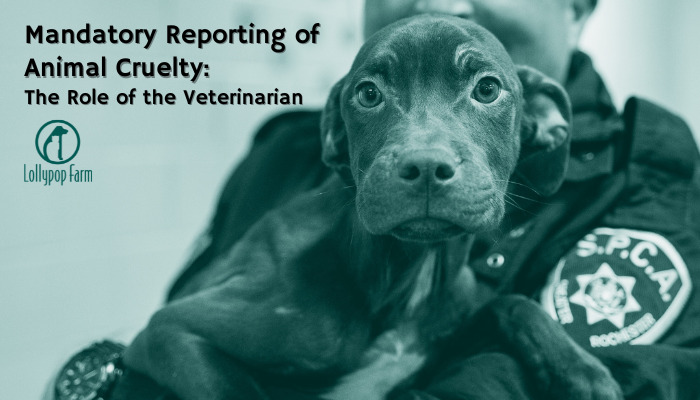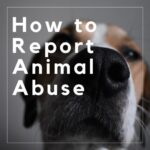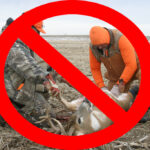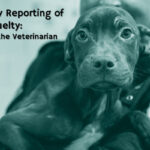Animal cruelty remains a disturbingly pervasive issue across the globe, transcending borders, cultures, and societies. Veterinarians often stand on the frontline, witnessing the ravages of neglect, abuse, and maltreatment that befall innocent animals. However, a significant question arises: can a veterinarian summon law enforcement when encountering suspected cases of animal cruelty? Answering this query necessitates an exploration into veterinary ethics, legal obligations, and the broader implications of such actions.
First and foremost, it is essential to establish the veterinarian’s ethical framework. Veterinary ethics are founded on the principles of the veterinary profession which dictate the responsibilities held by practitioners toward their animal patients, their clients, and society as a whole. At the heart of this ethical mandate is a commitment to animal welfare. This commitment leads many veterinarians to grapple with the moral imperatives of reporting observed cruelty or abuse. Failing to report can often place the animal in further danger, while simultaneously perpetuating a cycle of neglect and suffering.
In many jurisdictions, veterinarians are considered mandated reporters. This designation implies a legal obligation to report suspected animal cruelty or neglect to appropriate authorities. The specifics of these laws, however, vary widely from state to state and country to country. Generally, veterinarians who suspect abuse are encouraged to communicate their concerns to local authorities, often leading to police involvement depending on the situation.
Understanding the legal implications is crucial when weighing the decision to report. In certain regions, veterinarians may have an explicit legal obligation to contact law enforcement if they suspect animal cruelty. Failure to do so could lead to repercussions, potentially jeopardizing their professional standing and license. This legal responsibility amplifies the ethical dilemma: the decision to report is not merely a moral one; it carries legal ramifications as well.
Moreover, these laws are frequently designed to protect not only the animal in question but also the veterinary professional. The act of reporting signals a commitment to eradicating cruelty and maltreatment while fostering a safer environment for animals. It empowers the veterinarian to uphold their ethical obligations and protects them from potential legal backlash for failing to act upon their suspicions.
When a veterinarian decides to call the police, a series of processes must unfold. The veterinarian must gather detailed evidence, often documented through medical records, photographs, and witness statements. This thorough documentation becomes paramount, as law enforcement relies heavily on factual information to investigate further. A well-prepared case can serve as a catalyst for legal action, subsequently facilitating interventions for the distressed animal.
One prominent factor in this equation is the emotional struggle veterinarians face when confronting potential animal cruelty. Witnessing the effects of abuse can evoke profound feelings of anger, sadness, and helplessness. Navigating these feelings is essential for veterinarians as they embark on the path of reporting. The internal conflict often rests between the empathy directed towards the animal and the fear of straining client relationships or becoming embroiled in legal disputes. Such psychological battles underscore why the decision to report is often fraught with complexity.
In tackling the emotional toll, professional support systems should be emphasized. Veterinarians should be encouraged to consult their peers, seek advice from professional organizations, or participate in workshops addressing animal welfare and ethics. These platforms not only provide essential knowledge but also offer moral fortitude during challenging circumstances. They foster an environment where veterinarians can share experiences and strategies, further fortifying their resolve against the epidemic of animal cruelty.
Additionally, community outreach and education play an integral role in combatting cruelty. Veterinarians can engage in local initiatives aimed at raising awareness about animal welfare, proper treatment, and responsible pet ownership. Education acts as a preventative measure, equipping individuals with the knowledge and resources needed to recognize abusive situations. Consequently, fostering a culture of compassion and respect for animals may lead to a decrease in cruelty cases, diminishing the need for reporting.
While many veterinarians are empowered to act on the behalf of their animal patients, the act of reporting animal cruelty is just a piece of a much larger puzzle. As the veterinary profession evolves, ongoing discussions about ethical responsibilities, legal obligations, and mental health challenges must remain at the forefront. The culmination of these elements can forge a powerful force against animal cruelty, one where veterinarians, armed with knowledge, compassion, and bravery, become formidable advocates for the voiceless.
In conclusion, while the ability to call the police regarding animal cruelty falls under the purview of the veterinarian’s ethical and legal responsibilities, it extends beyond mere obligation. The decision to report becomes a beacon of hope for the afflicted animals, marking a pivotal moment in their lives. By understanding the profound implications of their actions, veterinarians can champion a change that not only liberates animals from suffering but also instills a renewed sense of responsibility in society at large. We must continue to push the narrative that every creature deserves protection, and that as a collective, we hold the stance to advocate tirelessly against the shadows of cruelty.






